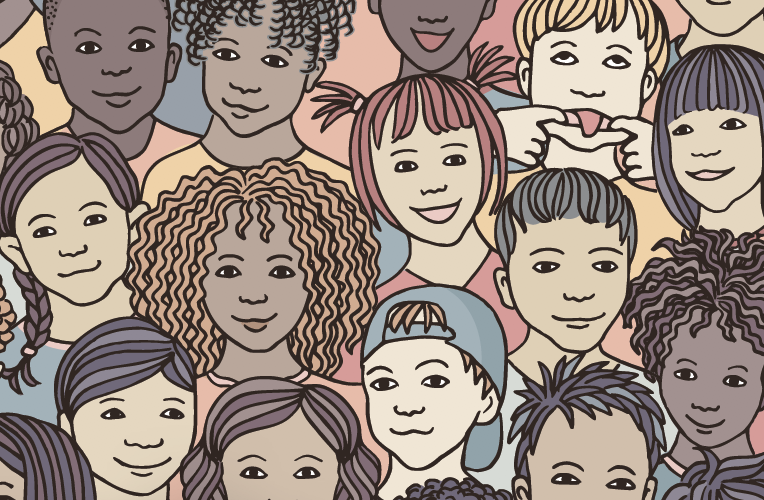The example of children
Politics have immense impact on the social determinants of health, and nowhere is this clearer than in outcomes for children
The Netherlands, Denmark, Norway, Switzerland and Finland are the five best countries in the world, in that order. I would never make a statement like that without criteria and evidence to support it. In this instance the criteria are measures of child well-being: mental well-being, physical health and development of skills. The evidence comes from the UNICEF Report Card 16, which scores the 38 richest countries on those three criteria. These five countries are the only ones that score in the top third of rankings on all three measures. By contrast, the United Kingdom ranks 27th, and the United States 36th, out of 38.
UNICEF’s causal framework for child well-being has similarities with that adopted by the World Health Organization’s Commission on Social Determinants of Health in 2008. A child’s growth and development are influenced by the relationships of the family and the social network, which, in turn, are affected by resources, policies and the general societal context. Child poverty is a powerful influence on the networks and family relationships surrounding the child, and is, in its turn, influenced by policies and the general societal context. For international comparisons UNICEF uses a relative measure of poverty: child poverty is defined as living in a household with less than 60% of median income, after taking account of taxes and transfers. In four of the five countries I highlighted as “the best”, child poverty is remarkably low: 11% in Denmark and Finland, and 13% in the Netherlands and Norway. It is somewhat higher in rich Switzerland at 19%. The two countries I highlighted as having low levels of child well-being have higher levels of child poverty: 24% in the United Kingdom and 30% in the United States.
The politics of poverty
Child poverty is a political choice. It is worth examining two classes of influences on poverty: the household’s post-tax and pre-tax income. Post-tax is a direct policy choice. In the United Kingdom, we highlighted changes made by the chancellor of the exchequer (finance minister) over the decade from 2010 to 2019. Fiscal policy was neatly regressive for families with children by decile of income: the poorer the family the greater was the predicted drop in income as a result of changes to taxes and benefits. The result was an increase in child poverty.
Pre-tax income, on the surface, seems less susceptible to political choice. But that may not be the case. In the United States, the share of income enjoyed by billionaires has risen sharply while average incomes have stagnated. This trend has been exaggerated by the COVID-19 pandemic. Since March 2020, 50 million Americans have lost their jobs, and the hourly pay of the bottom 83% of private-sector workers has declined by 4.4%. At the same time, the wealth of America’s 643 billionaires increased by 29% – $845 billion – according to Inequality.org.
Thomas Piketty makes the point that during the 1950s and ‘60s, when the top marginal rate of tax was high, there was less incentive for top earners to be paid more money. The choice by the government to reduce the top marginal rate contributed to the astonishing rise in top salaries. Another influence was the failure to put in place good governance arrangements that might have prevented this increase at the top. European countries have, to a greater or lesser degree, done this.
The COVID-19 pandemic has exposed and amplified underlying inequalities in society. Societal responses to the pandemic will contribute. The large increase in inequalities in the United States have been seen to greater or lesser extent in many countries. People who can work from home and retain jobs can maintain or increase their incomes. People who cannot are in great danger of catastrophic loss of income, which will have dramatic effects on children. Societal approaches to reducing these effects, such as furlough schemes or enhanced unemployment benefits, can make a substantial difference.
Lockdown affects children in other ways. The United Nations Development Programme has documented the increase in effective out-of-school rates for primary school-age children. The less developed the country, the greater the out-of-school rate. Within richer countries, the effect of lockdown on inequalities in educational performance has been documented. Children from poorer families have fallen further behind in their schooling than children from more advantaged backgrounds. The educational divide is being increased.
Data is starting to accumulate on the effects of lockdown on children’s mental health. Predictably, overcrowded housing and worsening economic fortunes have an impact on family functioning, and children suffer the effects.
I have used children’s well-being and the effect of the COVID-19 pandemic to illustrate, but they are but an exemplar of the way that the social determinants of health can be affected by politics. It is not too far a stretch to say that health equity is a political choice.












